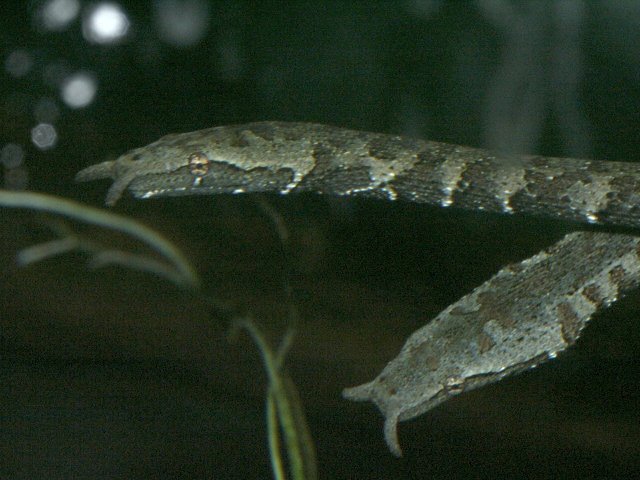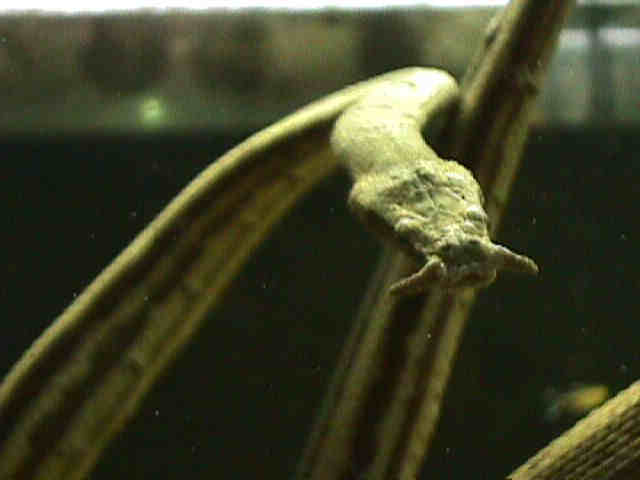
projections at the tip of the snout. These two tentacles on the rostral side of its snout, is the most distinctive part of the snake. The tail makes up for 25 % of its total body length. It is approximately 28 to 36 inches long (70-90 cm)
Family Colubridae (Rear-fanged snakes)
This snake is an ambush hunter and it assumes a certain pre-strike posture.They anchor themselves to a submerged branch with their tails and prey on small fish as they swim by. These snakes are totally aquatic and nearly helpless on land. The tentacles are soft, and fall to the side when the snake is out of the water.They must surface to breathe. They are venomous.Fangs are small and located in the back of the mouth.

Picture courtesy of Hanneskei http://www.geocities.com/hanneskei/Snakes.html
Bears live young and captive breeding is not uncommon.
Herpetarium
Stephanie Reder, mailto:lilred_2002_15@hotmail.com
Sources and Links: